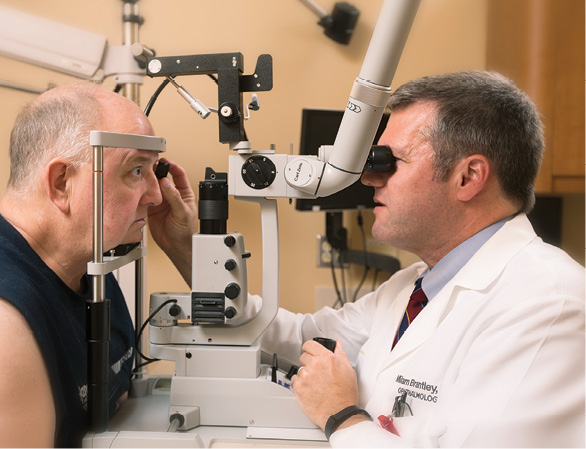National Eye Institute
-

Finally, a type of face that men recognize better than women
A study finds men are better at recognizing Transformer faces while women are better at recognizing Barbie faces, supporting the theory that we're more likely to recognize what we're used to seeing. Read MoreNov 16, 2016
-

‘Audacious’ grant spurs research on retina regeneration
Researchers at Vanderbilt University Medical Center and Vanderbilt University have received a $1.9 million grant from the National Institutes of Health (NIH) to support research to restore vision through regeneration of the retina. Read MoreSep 1, 2016
-

Eye Institute Takes Personal Approach to Blinding Diseases
Vanderbilt Eye Institute’s Initiative for Personalized Medicine in Ophthalmology looks for biomarkers that determine a person’s risk of developing any of the three leading causes of blindness. Read MoreDec 23, 2014
-

In the brain, the number of neurons in a network may not matter
A study has found that the time it takes neural networks in the brain to make decisions is remarkably stable regardless of size: a finding that could make it easier to achieve the goal of the President's BRAIN Initiative established last spring. Read MoreFeb 3, 2014
-

Finding the place where the brain creates illusory shapes and surfaces
Neuroscientists have identified the location in the brain's visual cortex responsible for generating a common perceptual illusion: seeing shapes and surfaces that don't really exist when viewing a fragmented background. Read MoreSep 30, 2013
-

NIH lauds Rex’s ideas for future of vision research
Tonia Rex, Ph.D., assistant professor of Ophthalmology and Visual Sciences at the Vanderbilt Eye Institute, was recently named one of 10 winners of the National Institutes of Health competition for ideas on the future of vision research. Read MoreFeb 14, 2013
-

Clear vision of protein interactions
Researchers identify protein partners that may keep the lens of the eye transparent – and free from cataracts. Read MoreAug 5, 2011
-

Identification of glaucoma gene brightens future for therapies
Researchers have identified a new candidate gene for the most common form of glaucoma, which runs in families. The findings offer novel insights into glaucoma pathology and could lead to targeted treatment strategies. Read MoreFeb 24, 2011